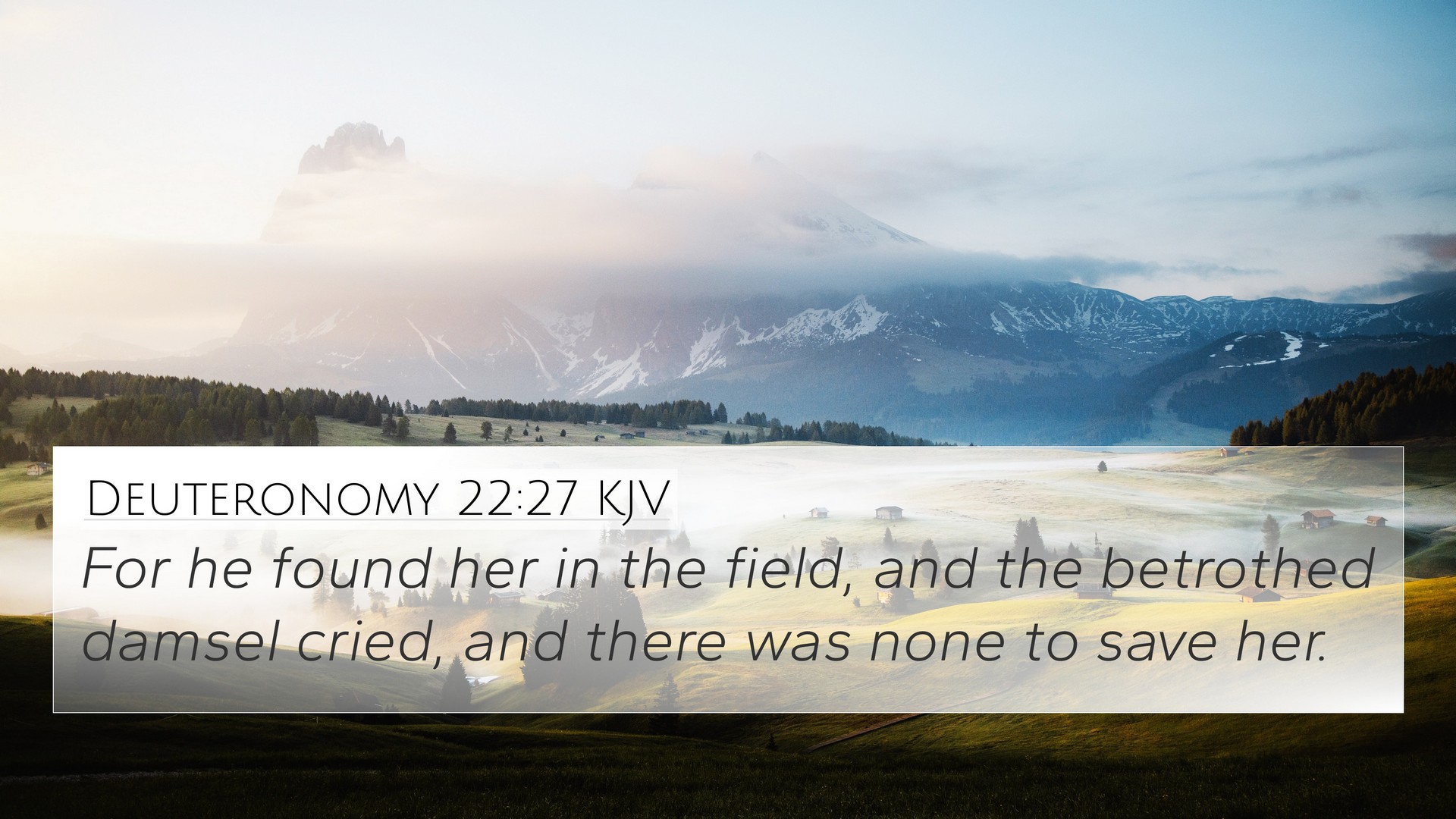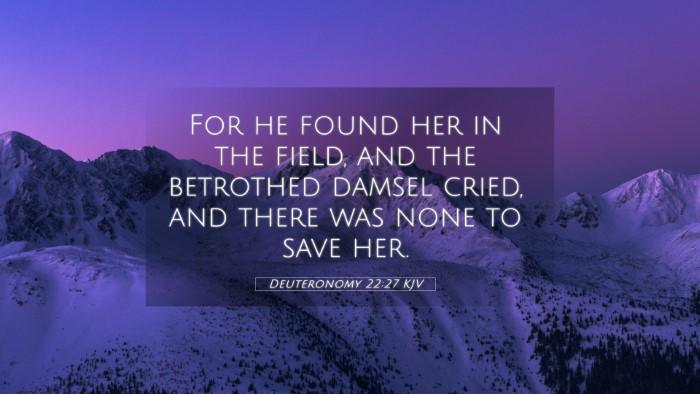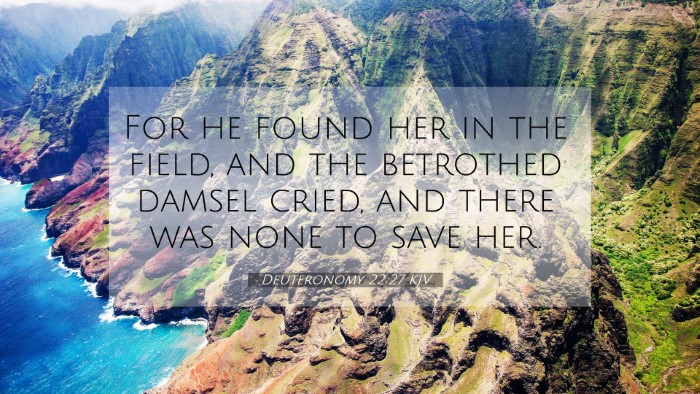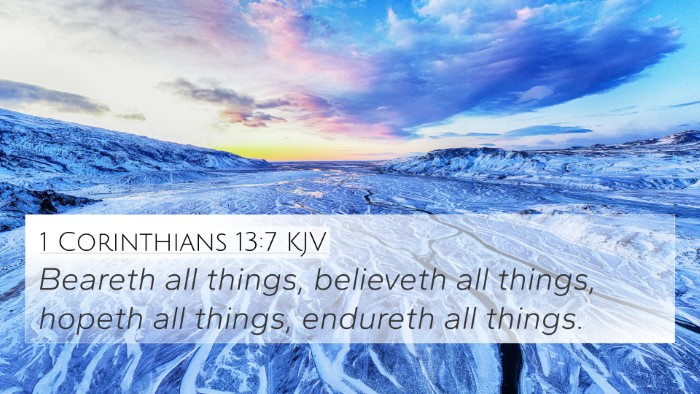Deuteronomy 22:27 - Summary and Interpretation
Deuteronomy 22:27 states, "For he found her in the field, and the betrothed damsel cried, and there was none to save her." This verse describes a serious situation where a betrothed woman is assaulted, emphasizing her vulnerability and the dire need for protection.
The implications of this scripture resonate deeply across the biblical text, highlighting themes of morality, justice, and societal protection for the innocent. It also calls attention to God's concern for those who are powerless.
Commentary Insights
Matthew Henry emphasizes the gravity of the situation described in Deuteronomy 22:27, noting that the rape of a betrothed woman is a crime against her honor and the institution of marriage. He points out that the text notes the absence of help for her, indicating societal negligence towards her plight.
Albert Barnes elaborates on the necessity of protection for women in ancient laws, illustrating the social contract that existed. He acknowledges the emotional and spiritual ramifications of such trauma, urging the community to respond with justice and support for the victim.
Adam Clarke provides context on the cultural implications of betrothal, indicating that the woman was under a form of legal obligation akin to marriage. He stresses the seriousness of the crime and the need for communal justice, urging leaders to enforce accountability for such acts.
Thematic Connections
Deuteronomy 22:27 can be cross-referenced with other biblical passages that echo similar themes of justice and protection. Below are several key verses:
- Exodus 22:22-24: This passage discusses the treatment of widows and the fatherless, illustrating God's care for the vulnerable.
- Deuteronomy 19:15: This verse emphasizes the need for witnesses in legal matters, highlighting the importance of truth in justice.
- Proverbs 31:8-9: Encourages speaking up for those who cannot speak for themselves, aligning with the protective aim of Deuteronomy 22:27.
- Isaiah 1:17: Calls for justice and the defense of the oppressed, resonating with the moral imperatives raised in this verse.
- Matthew 5:27-28: Jesus deepens the understanding of adultery, teaching the weight of thoughts and intentions, extending justice beyond mere actions.
- Luke 10:30-37: The parable of the Good Samartian showcases the importance of helping those in distress, mirroring the call for societal responsibility.
- 1 Peter 3:7: Highlights the importance of treating women with understanding and honor, underscoring their value and dignity.
Understanding Through Cross-Referencing
The connections between these verses demonstrate a coherent biblical narrative that emphasizes moral integrity, protection for the vulnerable, and communal responsibility.
Cross-referencing biblical texts provides a deeper understanding of themes and moral laws, and the tools for Bible cross-referencing can enrich one's study and interpretation.
Conclusion
In studying Deuteronomy 22:27 and its connections with other scriptures, one can see the importance of protecting individuals, especially those who are vulnerable. The themes of justice, protection, and morality intertwine throughout the biblical texts, urging communities to uphold these principles.



